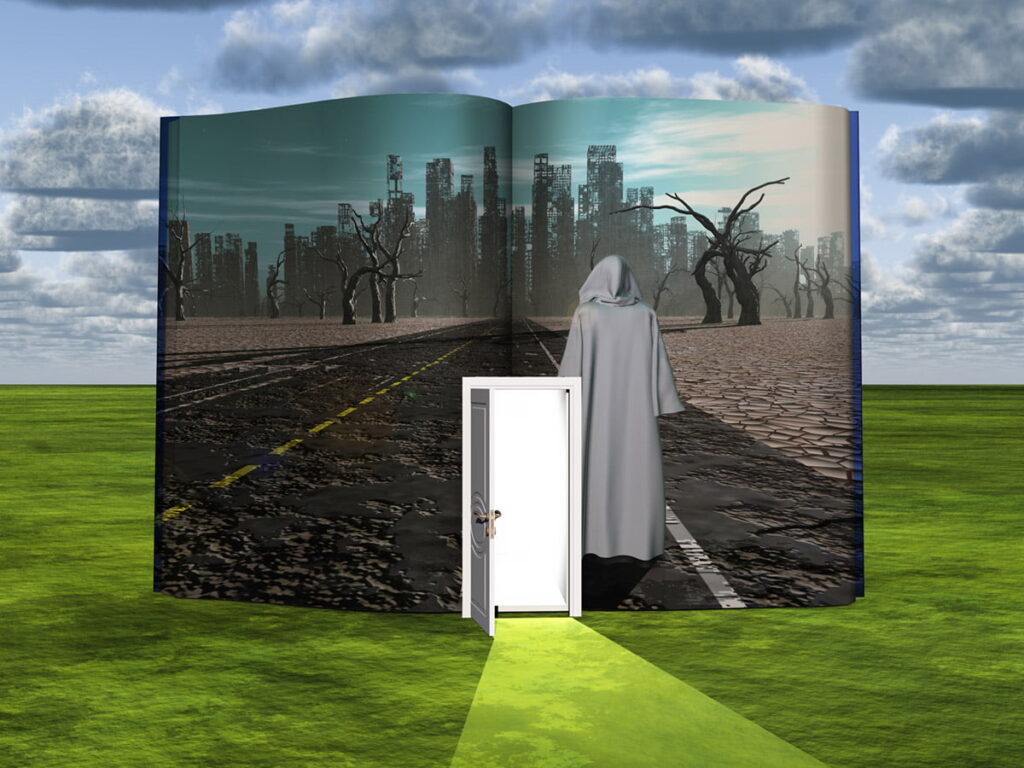Science Fiction: What’s It All About?

Energion publisher Henry Neufeld requested that I explain science fiction because I am the first independent author to be featured in his latest imprint, Enzar Empire Press. I claim no scholarly expertise but I grew up reading science fiction and now I write it. Originally it was called scientifiction and according to Merriam-Webster the word first appeared in 1916, so in that sense the field is almost exactly 100 years old. The word scientifiction has fallen out of use and these days science fiction is the generally accepted term, although SF and sci-fi are also common.
As a boy devouring what I thought of as sci-fi books I was shocked one day to find out that a favorite author intensely disliked the phrase science fiction and he hated my favorite word, sci-fi. Later I learned that other authors in the field felt the same way. It was one more mystery of the adult world that I, as a young person, did not understand.
Today as a “sci-fi” author, I do understand. It comes down to money. There is a prejudice against science fiction in certain people, especially women, and they assume they won’t like it so they don’t buy it. Knowing this, some authors resented being consigned to what they felt was a literary ghetto that trivialized their careers, marginalized their art, and reduced their incomes. Ironically I find myself swimming against the same current, so Henry and I struggled to come up with a description for my science fiction novel that didn’t use those bad words. We settled on Henry’s invention, “a novel of speculative science,” which appears on the front cover.
Prejudice often results from misinformation. Merriam-Webster is my favorite dictionary but even their definition of science fiction is not—in my opinion—correct:
http://www.merriam-webster.com/dictionary/science%20fiction
noun : stories about how people and societies are affected by imaginary scientific developments in the future
One counterexam ple that immediately comes to mind is a story wherein (1) people are not the main characters, (2) there are no imaginary scientific developments, and (3) no part of it takes place in the future. This story immediately comes to mind because I wrote it. It is called Day of the Dragon. The main characters (1) belonged to a hypothetical species of intelligent dinosaur, who (2) lived their lives in a society based on science and engineering you would recognize, and (3) existed entirely in the past: their story ended a long time ago. So with all due respect to my favorite dictionary, Merriam-Webster swung and missed three times.
ple that immediately comes to mind is a story wherein (1) people are not the main characters, (2) there are no imaginary scientific developments, and (3) no part of it takes place in the future. This story immediately comes to mind because I wrote it. It is called Day of the Dragon. The main characters (1) belonged to a hypothetical species of intelligent dinosaur, who (2) lived their lives in a society based on science and engineering you would recognize, and (3) existed entirely in the past: their story ended a long time ago. So with all due respect to my favorite dictionary, Merriam-Webster swung and missed three times.
Just as it is possible to define science fiction too narrowly, it is also possible to define it too broadly, and this has been done. At least one author in the field pointed out that a subgenre of science fiction called “alternative history” technically includes just about every novel ever written. An example of alternative history is a story in which Hitler obtains nuclear weapons first and takes over the entire world. Under this overly big umbrella Gone with the Wind is science fiction: in an alternative history the characters and situations in that classic book could have existed.
Here is my definition:
Science fiction stories ask and answer the question what if?
For example, when I was growing up, everybody “knew” that all dinosaurs were big in body and small in brain. But what if there had been even a single solitary exception? What might such a world have been like? You can find out by reading this book called Day of the Dragon….






